Get unlimited 4G home broadband from just £15/month with no need for a phone line. Compare the best 4G home broadband deals.
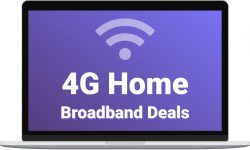 In the UK, 4G home broadband has become an increasingly popular alternative to fibre broadband.
In the UK, 4G home broadband has become an increasingly popular alternative to fibre broadband.
Currently available from just £15 per month, 4G home broadband technology allows you to get online in as little as one working day. You can also get comparable download speeds to fibre broadband, without the need for a landline or for an engineer visit.
In this article, we’ll look at the best 4G home broadband deals in the UK. We’ll also review all of the individual 4G broadband providers, as well as looking at 4G hybrid broadband services.
| 4G Broadband Plans: | From £15 per month |
|---|---|
| Recommended Deal: | £15 per month for unlimited 4G broadband on Three |
| 4G Broadband Providers: |
|
| Hybrid Broadband Plans: |
|
Contents
4G Home Broadband Deals
At present, Three is our recommended provider for 4G home broadband in the UK.
Three
You’ll pay just £15/month for unlimited data on the 4G Hub from Three. This allows you to connect up to 64 devices to the internet, with typical download speeds of 50-100Mbps (though this can vary based on the signal strength and coverage in your area). On Three’s 4G home broadband, you’ll benefit from free delivery on the next working-day when you order before 8pm. There’s also a 30-day money-back guarantee so you can cancel the service and return the Hub if you’re not satisfied with the performance. |
Compare 4G Home Broadband Providers
There are several providers offering 4G home broadband in the UK. The following table shows the key providers:
| 4G Broadband Provider | Plans From | Coverage Provider | Key Features |
|---|---|---|---|
| 4G National Broadband | £31.99/month | Vodafone or O2 |
|
| EE | £35/month | EE |
|
| Three | £15/month |
Three | |
| Vodafone | £30/month | Vodafone |
|
Alongside them, there are also a number of 4G hybrid broadband services.
With hybrid broadband, you’re taking a 4G broadband service at the same time as taking fixed-line home broadband. The 4G connection will either be used as a backup for your fibre broadband connection, or it can be combined to boost the total speeds available.
| Hybrid Broadband Provider | Plans From | Coverage Provider | Key Features |
|---|---|---|---|
| BT Hybrid Connect | £24.99/month (+£7/month add-on) |
EE |
|
| BT Hybrid Speed Boost | £35.94/month | EE |
|
| Vodafone Pro | £30/month | Vodafone |
|
For more information, you can read on to learn more about each individual provider.
4G Home Broadband Providers
4G National Broadband4G Internet (also known as 4G National Broadband) is a specialist provider of 4G home broadband services. Mainly targeted at customers living in rural areas, they offer unlimited 4G home broadband from £31.99 per month.
Most 4G Internet customers receive their coverage from Vodafone. However, you may receive your coverage from O2 if you’re living in an area where you’re not able to get a signal from Vodafone. You’ll get a detailed coverage check at the point you sign up for the service which will determine the network you’re assigned to. The following table shows the key things to know about 4G National Broadband:
For more information, see our 4G Internet review. Tariff Information: 4G National Broadband Website |
||||||||||||||||||||||||||||||||||||||||||||||||||||||||||
EE
It’s worth noting that the download speeds available will depend on the plan you choose. If you choose EE’s 100GB plan, this will have a maximum download speed of 30Mbps. On the 300GB and unlimited data plans, you’ll get EE’s fastest available 4G download speeds where you live. On average, this should normally be around 40Mbps. EE pay monthly mobile customers will also get a mobile data boost when they sign up for 4GEE Home. If you have a 5G phone plan, this will be boosted with an extra 20GB data per month. Meanwhile, on 4G phone plans and 12-month SIM-only deals, you’ll get an extra 5GB data added to your plan every month. The following table shows the key things to know about EE’s 4G home broadband:
For more information, see our 4GEE Home broadband review. Customers living in a 5G area can also get EE’s 5G home broadband service from £45 per month. Tariff Information: EE Website |
||||||||||||||||||||||||||||||||||||||||||||||||||||||||||
Three
If you order before 8pm, you’ll get free delivery of your 4G Hub on the next working day. When it arrives, it’s a simple plug-and-play setup. There’s no need to wait around for an engineer visit. You’ll also get a 30-day money back guarantee, allowing you to return the Hub if you’re not satisfied with the service. Unlike other providers, Three heavily restricts the coverage area for their 4G home broadband. They only offer it in selected postcodes with sufficient network capacity and where they think the 4G coverage is strong enough to give a good service. As such, Three’s 4G home broadband is only available in around 25% of UK homes. The following table shows the key things to know about Three’s 4G home broadband:
For more information, see our Three Broadband review. You can also get Three’s 5G home broadband if you’re living in a 5G coverage area. Tariff Information: Three Website |
||||||||||||||||||||||||||||||||||||||||||||||||||||||||||
Vodafone
The following table shows the key things to know about Vodafone’s 4G home broadband:
For more information, see our Vodafone GigaCube review. There is also a 5G-powered Vodafone GigaCube service with unlimited data from £35 per month. Tariff Information: EE Website |
||||||||||||||||||||||||||||||||||||||||||||||||||||||||||
Other Providers
Unfortunately, O2 doesn’t currently offer a 4G home broadband service. Furthermore, they say their SIM cards cannot be used in a mains-powered device for 4G home broadband. You can, however, get a battery-powered mobile broadband hotspot on O2, with some unlimited data plans available. If you like, you can build your own 4G home broadband service with an unlocked 4G router (e.g. from Amazon) and a suitable unlimited data SIM card. |
||||||||||||||||||||||||||||||||||||||||||||||||||||||||||
What is 4G Home Broadband?
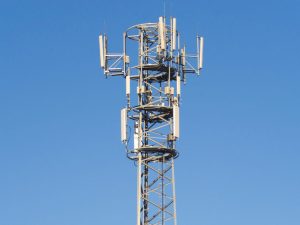 In the UK, 4G home broadband is a technology that allows you to get all of your devices at home connected to the internet using 4G technology. Unlike traditional fixed-line home broadband, it doesn’t require a landline or cable connection into your home.
In the UK, 4G home broadband is a technology that allows you to get all of your devices at home connected to the internet using 4G technology. Unlike traditional fixed-line home broadband, it doesn’t require a landline or cable connection into your home.
There are several advantages to using 4G home broadband:
- You can get online very quickly without an engineer visit. With 4G home broadband, there’s no waiting around for a phone line or cable to be installed. In fact, your 4G home broadband router can arrive in as little as one working day. It’s then a simple plug-and-play setup to get your devices online.
- 4G broadband can be faster than fixed-line broadband in some areas. Particularly in more rural areas and in blocks of flats without access to fibre, 4G home broadband can give faster download speeds. In rural areas, a 4G mobile mast can deliver broadband to homes across a wide area, without the need to lay fibre optic connections individually to every single home.
- 4G broadband gives you more flexibility. For instance, you can bring it with you to another location. This might only be on a temporary basis (e.g. when you go away on holiday), or it might be on a permanent basis (e.g. when you change your address). In addition, some providers offer 4G broadband on a one-month rolling basis.
- 4G broadband can be cheaper than regular fibre broadband. With unlimited 4G home broadband now available from just £15 per month, you can benefit from lower prices than on regular fibre broadband.
There are also some disadvantages to using 4G home broadband:
- 4G broadband is more easily affected by network congestion and poor weather. For instance, you may see a reduction in your download speeds due to poor weather or due to other people using the service in your area. This tends to be less of a problem on traditional fixed-line broadband.
- Download speeds can vary substantially depending on your location. Although there are things you can do to improve your speeds (e.g. placing the router close to a window that’s facing in the direction of your nearest mast, or using an external 4G antenna), certain factors cannot easily be influenced (e.g. the distance to your nearest mast). This can affect the speed of your service.
- Latency or “ping” is higher on 4G broadband. Latency (also known as “lag” or “ping”) refers to the amount of time it takes for data to travel up to the internet and back. On a 4G connection, the latency is typically around ~50ms (0.05 seconds). Meanwhile, a fixed-line connection typically has latency of about 10-20ms (0.01-0.02 seconds). This shouldn’t noticeably affect things like browsing and streaming, but it may affect fast-paced online gaming.
- EE and Vodafone do not offer public IP addresses on 4G broadband. You won’t get a public IP address when using 4G home broadband from EE or Vodafone. This is because both providers use CGNAT technology so you’ll be assigned a private IP address that’s unable to accept incoming connections. It doesn’t make a difference for most online activities such as browsing the web, streaming or downloading. However, it can cause issues if you’re running a server, using P2P applications or playing some online multiplayer games. On Three’s 4G home broadband, you’ll get a regular IP address that’s publicly-accessible from the internet.
4G Hybrid Broadband Providers
As an alternative to 4G home broadband, you can also consider taking a hybrid broadband service.
With hybrid broadband, you’ll have both a fixed-line connection and a 4G connection at the same time. Depending on the configuration, the 4G connection can either be used for backup purposes only or it can be used at the same time to improve your overall speeds.
BT Hybrid Connect
To get the Hybrid Connect service, start by choosing one of BT’s fibre broadband plans:
You’ll then pay an extra £7/month for the Hybrid Connect add-on. This comes with unlimited data when you’re connected to 4G, with download speeds of up to 30Mbps and upload speeds of up to 5Mbps.
For more information, see our BT Hybrid Connect review. Tariff Information: BT Website |
|||||||||||||||||||||||||||||||||||||||||
BT Hybrid Speed Boost
According to BT, Hybrid Speed Boost improves the download speed on your broadband by an average of 20Mbps. It also improves the upload speed of your connection by ten times on average, giving you a much better experience for cloud storage and online backup. At the time of writing, you’ll pay £29.95 per month (exc VAT) for a BT Business copper connection with Hybrid Speed Boost included. This is equivalent to £35.94 per month inclusive of VAT. It comes with unlimited data on both the copper and the 4G connection. You’ll need to order your broadband service from BT Business if you want to benefit from the Hybrid Speed Boost feature. If you’re an individual, you can sign up to BT Business as a sole trader. In fact, many individuals choose to sign up for a business broadband service as they can get a business-grade service with additional features like Hybrid Speed Boost included.
For more information, see our BT Hybrid Speed Boost review. Tariff Information: BT Business Website |
|||||||||||||||||||||||||||||||||||||||||
Vodafone Pro Broadband
You can get the following Pro Broadband plans from £30 per month:
You’ll also benefit from Vodafone’s Super WiFi service which uses mesh networking technology to improve the Wi-Fi signal in your home.
For more information, see our guide to Vodafone’s 4G Broadband Backup. Tariff Information: Vodafone Website |
|||||||||||||||||||||||||||||||||||||||||
More Information
For more information, you can also read our in-depth reviews on 4G Internet, 4GEE Home, Three Broadband and Vodafone GigaCube. If you’re living in a 5G coverage area, you can also consider getting 5G home broadband.
 If you’re looking for unlimited 4G home broadband, Three is currently our recommended provider.
If you’re looking for unlimited 4G home broadband, Three is currently our recommended provider. One of the key selling points of 4G National Broadband is the option of getting an
One of the key selling points of 4G National Broadband is the option of getting an 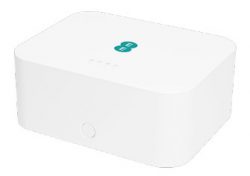 EE currently offers a 4G home broadband service, starting from
EE currently offers a 4G home broadband service, starting from 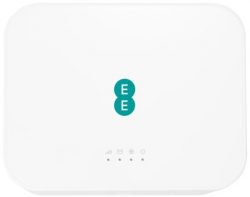
 At present, Three is offering unlimited 4G home broadband from just
At present, Three is offering unlimited 4G home broadband from just  Vodafone offers a 4G home broadband service with plans starting from £30 per month on the
Vodafone offers a 4G home broadband service with plans starting from £30 per month on the  BT offers
BT offers 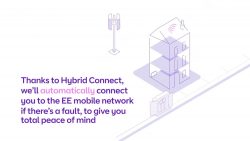 If you choose one of
If you choose one of 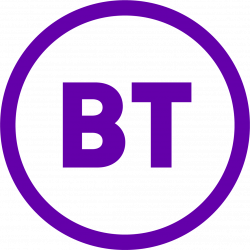
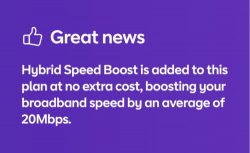 If you’re based at a location where you’re only able to get a copper (ADSL) fixed-line connection,
If you’re based at a location where you’re only able to get a copper (ADSL) fixed-line connection, 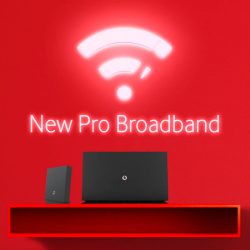 On
On 
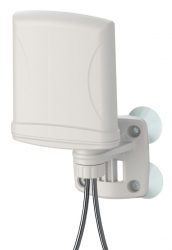


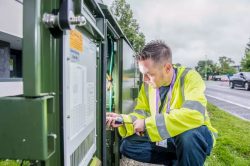




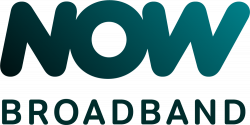
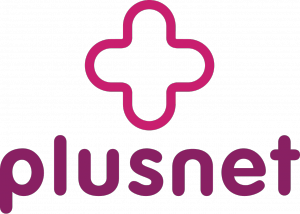
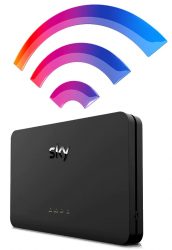





JustAnotherGuy said:
Well done and big thanks to Three for offering very low cost 4G & 5G broadband. it helps a lot in addressing broadband poverty (The extortionate broadband prices these days along with long term contracts is hindering the UK).
Unfortunately there are quite a few populated towns in England that havent got enough 3 masts, some of these towns, just a 15 minute walk from the town centre dont even have signal outdoors (zero to one bar) let alone indoors (forget 5G, there is no 4G nor 3G) (despite coverage maps stating “very good’ ‘Excellent’ coverage) The few masts Three do have, they dont have the reach & are heavily congested. (e.g Northampton)
Simon Cooke said:
Hi Ken,
Just yesterday I cancelled my Three 4G broadband despite being well out of the 14 day cooling period. I decided to go with this package back in September mainly because of the £14/month charge – buyer beware, you get what you pay for it seems! I monitored the speeds every day of the 14 day cooling period and apart from a few hiccups it seemed useable. Then the problems became more noticeable and my speed would fluctuate wildly, anywhere from 1.5Mbps to 40Mbps. The last couple of days it’s been stuck around the 1.5-2 Mbps region and I decided enough was enough. I’ve been in contact with Three’s support team in India several times over this – as well as going back to the Three shop where I took it out – and to be fair they’ve been helpful. I checked one last time yesterday morning and it was showing 38Mbps. While I was on my train a Three support guy in India rang and gave me the option to cancel with immediate effect. I thought about it for a second and said yes. So I’m now broadband-less and tethering off my Three phone for now. I was with Sky before so have the necessary connections for FTTC broadband here so am looking around for a new provider. At the moment Shell Energy seems a good bet – though I’m trying to ignore the very negative reviews I see on Trustpilot etc. Three didn’t want the Huawei router back so I may get a SIM from another provider to try out – O2 signal seems to be better where I live than Three. Am I right in thinking that I could get a Giff Gaff SIM and put in the router and just use it for data? Thanks for a very useful site!
Ken replied:
Hi Simon,
Thanks for your comment, and sorry to hear about the experience you’ve had on Three Broadband. With regards to the question about using a giffgaff SIM card in your 4G Hub, yes, it should be possible to do this. It is, however, worth being aware of their 12 device tethering limit if you’re using the £35 golden goodybag.
Hope this helps,
Ken
Calvin said:
Hi Ken,
Thank you for a Great site.
I also reached out to Ofcom as I wish to use a 4g router (B311).
Now I am not sure if it was just the way I asked or not but when I asked if I could use it with a 4g sim I was told in no uncertain terms,
“No You have to have a Data only sim as it becomes ‘ a (home) Broadband connection”.
looking at the Ofcom site the only reference to disallowed devices was ” a narrowly defined list!” I assume that to mean devices that take more than one sim as no network(s) allow this for good reason.
I think for the O2 question below & which sims can be used in a 4g router we might need a lawyer to answer definitively That is Unless it states in the T’s&C’s that you can or if it is specifically sold to be used in a 4G router?
For my use I have seen a deal with Talkmobile that I would be interested in but I am hesitant to go for because I can not find anything against it but they don’t say it is allowed either (use of 4g router).
Any insight on this would be very helpful.
P.S. the Three link for unlimited data has ended as it is not available through it anymore for that price 🙁
Also I have noticed that a lot of Virgin’s plans now Do not allow tethering anymore so might be worth mentioning (according to comparison sites).
Final point of note Tesco’s also have the same restriction on a mains powered device as O2 in their T’s&C’s
Ken replied:
Hi Calvin,
Thanks for your comment. I’ve written a little more about this in my guide to SIM cards for tablets & routers. However, I agree that it’s a bit of a grey area & I don’t believe Ofcom have ever said whether this restriction is permitted or not. Even the distinction between 4G mobile broadband and 4G home broadband isn’t that clear, as you could use a battery-operated hotspot for 4G home broadband if you like.
With regards to the £22/month deal for 4G home broadband on Three, this should still be available. At present, it’s £22/month for the Hub only, or £23/month including a 32-inch LG Smart TV. Alternatively, if you’re referring to the £16 unlimited data SIM, this should still be available but you might need to use the Google Chrome browser.
Hope this helps,
Ken
Calvin replied:
Hi Ken,
Thank you for your reply
Yes that works I didn’t think to try try Edge but that does indeed still work 🙂 (had tried firefox + opera) & several different links all with the same result of empty basket. SO yes I will bear that in mind as a back up option as was with three a couple of years ago & was getting paltry speeds (down as low as bits) although that was a 3g device so still very worthwhile keeping in mind.
The reason I like the other network I mentioned is I have tried a Vodafone based sim in the B311 & I can get very satisfactory speeds (40+ Mbits to over 60mbits down 25+ up )
As for the battery operated devices would you know of any you can remove the battery and use from mains as due to my housing I believe That is the only way I will get a decent wifi signal as competing with at least 8 other wifi networks & that is before anyone has visitors!!
I have seen mention of this on other sites but I wasn’t paying any attention to that at the time as I was happy with my setup.
I did actually ask about wether they were allowed to disallow devices when I phoned up I was told they are allowed to but didn’t elaborate further only saying as it becomes HBB so still somewhat vague.
I think I will have to bite the bullet & contact the other provider & ask specifically to confirm or deny if I can use the B311 although they have no restrictions on tethering so I would hope they would allow it.
apologies for the double post.
Thank you for your advice so far 🙂
Calvin replied:
Hi Ken,
Just a quick follow up as other people might find the info useful.
I contacted Talkmobile & asked them if you are allowed to use a router on their network with their sim deals.
I was pleasantly suprised to find out you can, with the caveat of “as long as the sim works in it as not all routers will work with their sims”
I am not sure if they could be referring to locked to network routers or not?
So it pays to just contact them & be upfront & ask first 🙂
I will get back to you & let you know if it does not work although I am hopeful it will.
P.s
Yes I was referring to the £16 unlimited sim deal having an empty basket. When I used Edge that does work.
As for the hub deals it just kept saying we are on our way. we are expanding our network to cover more homes.
Thank you for your help & advice
I will definitely send any friends that need advice on this or related subjects here.
Robert Lightbody said:
Hi,
I’m in the Scottish Highlands and they recently erected a 4G EE mast nearby. We’ve gone from having no internet and no mobile signal, to having a 100% signal! We’re using an Archer MR600 as mentioned above and its working very well indeed.
The only snag is that its a holiday home, not used for 6 months of the year, and the best data tariffs all need you to sign up to a contract, so in the meantime I’m paying £50 for 30gb of data each time…
chris calver said:
It seems of this date that ( June 6th 2021) Three not offering any 4G plans. Every time I try to get to one it ends up at 5G. Why where I live their checker tell me that 5G is fine is a load of nonsense as their 4G was rubbish eg 5mbs download compared to nearly 40mbs with O2 using a network checker on my mobile. Looking at a site that tells me where their masts are explains the difference.
Ken replied:
Hi Chris,
Thanks for your comment. Three offer different plans depending on your area. They offer 4G broadband in some areas and 5G broadband in different areas. Many places in the UK are also unable to get a Three Broadband service, even though they’re able to get a Three Mobile service.
Ken
Greg replied:
Vodafone have just offered me a 24month contract with unlimited data and uncapped speed (their slightly cheaper tariff has a max speed of 10mb) for £25 a month and includes a free mifi mini mobile router that works great, good signal as I do live in a poor signal remote area but it runs at best possible speed matching what my neighbour gets with an external aerial and Archer 600. Only limitation of the mifi is it’s a max of 10 wifi connections. I’m trying to decide whether to get an archer 600 or second hand B535? Is there a clear winner out of these two routers? Thanks Ken
Mat said:
Hi Ken,
Many thanks for a really helpful site.
Looking to install a external roof mounted omni direction antenna and sim 4G router.
Will all Sim routers have the necessary connector ‘sockets’ [forgive my ignorance of the correct terminology]? If not what am I looking for in a router?
Am I right in thinking that when a router is advertised as having 2 SMA external antenna sockets this is for transmitting the WiFi rather than receiving the $g signal from the aerial.
With apologies for the idiot questions
Ken replied:
Hi Mat,
Not a silly question at all! To answer them in order:
1) You’ll need to choose a 4G router that allows you to use an external antenna. Look for the ability to attach an antenna using a SMA or TS9 connector. More information about that here.
2) Leading on from 1, the SMA external antenna sockets are only used for receiving the 4G or 5G signal. There’s no impact on the Wi-Fi signal from having this antenna installed.
Hope this helps,
Ken
chris calver said:
Could you clear up the matter of mobile broadband on O2. I read yes as you say elsewhere you can not use one of their unlimited data phone sims ( that also has unlimited voice and text) in a 4G router powered by mains but what about the unlimited data sims ( with just 100 text) sold under the mobile broadband tab eg
https://www.o2.co.uk/shop/sim-cards/sim-only-deals#deviceType=other&contractLength=P12M
any thoughts on this? I am not sure what you said elsewhere cover these ( or maybe I am getting so confused my brain is addled)
Ken replied:
Hi Chris,
That’s a very good question! So looking at the exact wording of their unlimited data fair usage policy:
Based on my reading of clause 3.3, the restriction on use in a mains-powered devices only applies to the regular SIM Only plans. However, it also says that Mobile Broadband plans can only be used in the device they are sold with, which doesn’t quite make sense when you’re looking at a mobile broadband SIM-only deal. Given that SIM-only deals are normally designed to be used in your device of choice, I suspect you’ll therefore be OK to do this unless O2 advises you otherwise. However, the 650GB per month fair usage policy and the 12 device tethering limit will still apply to your plan.
Hope this helps,
Ken
chris calver replied:
Its all strange as I would have thought that 3.5 alone would be strong enough to prevent unwanted useage? 3.3 almost reads as if they want make you use their own 4G routers-deals rather than buy one then use a data sim? I just dont understand the need to exclude mains devices otherwise. I still wonder whether all this falls foul of that offical ruling made about being to able to use a sim where ever you want to?
Ken replied:
Hi Chris,
Thanks for the reply! Yes, I think it’s still debatable whether this would falls foul of the Ofcom net neutrality ruling. My understanding is that Ofcom haven’t made any further statements about this (and I suspect they’re unlikely to do so unless someone complains to them). I believe another reader on the website did reach out to Ofcom about this, but I’m not sure what the outcome of that was.
Ken
Calvin replied:
Hi ken,
I too have reached out to ofcom regarding using a 4G router via a sim card.
I was told in no uncertain terms that I “had to use a ‘Data Only’ sim”
if you use a 4g router as it becomes a “home Broadband” connection.
looking at the ofcom site they say equipment can only be restricted by a narrowly defined list which I can not find!
The only guidance I can actually find is this E.U. article, see article 2 under definitions. https://eur-lex.europa.eu/legal-content/EN/TXT/HTML/?uri=CELEX:02015R2120-20181220&from=EN
Which is also quoted in the ofcom approach to net neutrality pdf,
Where the same passage is quoted here: https://www.ofcom.org.uk/about-ofcom/latest/bulletins/competition-bulletins/all-closed-cases/cw_01210
click first + to access
The reason I am looking into this is I wish to use a B311 router, as my Dongle no longer receives an adequate signal/service to use reliably in the daytime (at least with my current network (O2 based)) I believe due to possible congestion in my area. By the way I am only 350 yrds from the mast!!
David C said:
Hi Ken,
Thank you so much for this site, it’s been extremely informative and is helping me make decisions on which 4G Home Broadband provider to choose when I move to my new house (which doesn’t have fibre).
One thing I am concerned about is the public v private IP address issue. I am used to BT Fibre Broadband in my current house, which I believe gives a public IP address. I do online gaming and use the occasional P2P app.
I’d be really grateful if you could please let me know:
1) Is there any way to get Vodafone or EE to offer public IP addresses on 4G?
2) Does BT 4G use public or private IP?
3) If I do end up having to go with a private IP address, is there any way to avoid the possible problems I may encounter (such as using a VPN)?
Thank you in advance for your help!
Ken replied:
Hi David,
Thanks for your comment. To answer your questions in order:
1) I don’t believe there is a way to get a public IP address on these networks. You’ll need to use a workaround instead (e.g. a L2TP service from AAISP).
2) Great question! I’m not sure the answer to this. BT have only recently launched their 4G home broadband service so it’s still a very new product. The good news, however, is that it’s a lot more like a regular broadband service and they offer lots of their normal benefits like email, anti-virus, etc. It’s possible, therefore, they’ve thought about this. The best way to find out for sure is probably to reach out directly to BT with the question.
3) Yes, you can use a L2TP service. AAISP is one provider of L2TP – they charge £10/month for their service. Speeds are capped at 100Mbps and monthly data usage is capped at 1,000GB on the service.
Hope this helps,
Ken
David Chapman replied:
Great, thanks for your response Ken – really appreciate it.
Lawrence Victor Odell said:
Hi Ken, we live in an old farmhouse in the countryside and therefore receive low broadband speeds and poor reliability via copper (11Mbps), however on our phones we get up to 120 Mbps as we are close to a 4G mast.
The house is fairly large and has very thick walls so conventional routers only worked well with many repeaters and boosters. Currently, we have a Sky Q system with their 4.2 hub, Sky Q box and 4 mini boxes’s forming a good and reliable mesh, even if the broadband is slow.
We asked sky if there was a way of taking a 4G signal and inputting it to the sky hub telephone input, so we could increase our broadband speed and still enjoy all the benefits of their mesh, unfortunately, they will not comment as its using third party comment.
it seems an ideal solution for us and many others in the countryside, but not sure if technically possible or what equipment to use.
Ken replied:
Hi Lawrence,
Thanks for your comment. Unfortunately, I believe the Sky system can only be used their broadband service. If you want to use it with your 4G home broadband system, you’ll need to get a separate mesh wi-fi system (e.g. something like the BT Whole Home Wi-Fi or Amazon eero mesh wi-fi will do the job).
Ken
Andrew Ashley said:
Hi there,
Thanks for the comprehensive coverage of the market re 4G broadband. Do you know if it is possible to connect a regular (ie non mobile) phone to the router, which could have the same phone number as my existing landline and make/receive calls over the 4G broadband?
I want to avoid having both the 4G broadband and the landline, if that makes sense.
Ken replied:
Hi Andrew,
Thanks for your comment. Yes, you’ll need to port your existing landline number to a voice-over-IP (VoIP) provider. Unfortunately, I’m definitely not an expert in this area, but I recommend reading this guide from ISPReview. It talks through the number porting process, and also has a list of some VoIP providers on the final page.
Hope this helps,
Ken
Azaad said:
Hi there Ken.
I was just wondering if I take out an unlimited 5G sim only contract. Would it work with my Samsung Tab s7 5G?
Ken replied:
Hi Azaad,
Thanks for your comment. Yes, I see no reason why you wouldn’t be able to use it inside the Galaxy Tab S7 5G. For more information, see my guide to SIM cards for tablets and other devices.
Hope this helps,
Ken
Tony Underwood said:
Hi Ken. Fantastic resource. Thank you.
Moving into a rural property and 4G home broadband is our only viable option. The property has thick walls so worried about the signal throughout the house.
Do you have any advice on some of the “mesh” WiFi options and how well they are able to work with any of the 4G home broadband units. I currently have a Linksys Velop router from my previous provider.
Ken replied:
Hi Tony,
Thanks for the kind feedback! Sadly, I don’t have any specific advice to share on mesh Wi-Fi systems, except that I think they work pretty well and are definitely a worthwhile investment! You should be able to use pretty much any mesh wi-fi system with any 4G home broadband router, as long as the router has an Ethernet port.
Ken
TONY replied:
Hi Ken, thanks for your reply. Does O2 offer public IP?
Ken replied:
Hi Tony,
As far as I know, only Three currently offers this on 4G or 5G broadband.
Ken
Atsuko said:
Hi Ken
So glad I found this article. Thank you so much. We are coming to the end of our broadband and landline contract with BT. Living in the rural area (North Devon), we get only 3Mbps at most. Which was ok before the lockdown but now I do a lot of work on Zoom, it is almost unusable. After some reserach, I have decided we should go 4G. Where we live, we get 4G on Vodafone and EE but only 3G on Three.
I would like unlimited usage with Vodafone but it is advertised for 5G. Do you think I can still get this deal? It’s unlikely we get 5G in our area anytime soon. Vodafone 4G is 300GB for £50, whereas 5G is unlimited for £50. Seems no comparison to me.
Ken replied:
Hi Atsuko,
Thanks for your comment. You should definitely have a chat with Vodafone when you place your online order for the GigaCube. As far as I know, I believe it should still be possible for you to sign up for the 5G plan, even though you’re currently unable to get 5G coverage where you live.
Ken
Jamie said:
Thinking of converting over to 4g home broadband when my talk talk ADSL contract ends.
I was thinking about setting the network up myself (buy unlocked Huawei b535, smarty SIM and pointing xpol 1 antenna on the roof for the highest speeds).
I am only 0.2 miles from a 4g smarty (3) cell tower and get great speeds at home on a three pay as you go sim (can be 70mbps down 40mbps up at peek times).
Compare this to talk talk ADSL where I’m getting 9mbps down and 1mbps up it might be a serious option to go 4g for home broadband.
Andy said:
Hi Ken
Great site with lots of useful information but having just switched to a 4g service there are a few other things people should be aware of. There are a wider range of possible deals if you just buy a 4g router and stick a sim into it. I’m on Vodafone paying £37 a month for unlimited data on a 30 day contract. Cheaper deals are available from 02 and EE. A big drawback is that mobile providers use CGNAT which means you don’t get a public IP address. If you are a gamer this gives you strict NAT and might prevent online multiplayer gaming. There are VPN work arounds. On the plus side I get 80 down 25 up and a much more reliable service to ADSL.
Mike said:
Hi Ken,
Brilliant site with so much useful information but is there a reason that there’s no info on O2’s 4G broadband?
I’m with BT and pay an extortionate amount for slow (0-4 mbs) downloads so was looking to change to 4G.
My first choice would be Three for cost and unlimited but I only get at best 2 bars of 3G so not really an option unless I fit an external aerial and I don’t even know if an aerial would help that much.
I have my mobile with 02 and I’m getting 4G speeds up to 19/15 mbs so checked out O2’s site and the have a 4G router and 150Gb for just over £32/ month, albeit over 24months but you can adjust the criteria to suit.
I’m not sure whether EE, Vodafone or O2 would suit me best, all 3 give me decent coverage and their price plans are similar (ish) but when reading your info on limits and throttling I need the same for O2 to compare.
What do you think is the best network reliability for circa 100Gb a month?
Ken replied:
Hi Mike,
Thanks for your comment. The reason we haven’t covered O2 on this website is because they don’t really offer a 4G home broadband service! They do, however, have a 4G mobile broadband service which is what I believe you’re referring to in your message. This is similar to 4G home broadband in some ways (e.g. it uses the same underlying technology) but the router may not always be as optimised for regular usage at home.
Ken
Tom said:
Ken this is a super useful article, thanks.
I’ve been looking at the Vodafone options and am struggling to understand the difference between the gigacube and their standard mobile wifi – the price difference is crazy, does this imply a performance difference?
Thanks
Tom
Ken replied:
Hi Tom,
Thanks very much for the feedback! Like you say in your message, Vodafone has their normal mobile broadband service along with the GigaCube which is more of a home broadband replacement. The underlying 4G service and coverage is exactly the same for both so the main difference is the hardware you get. I discuss this in a bit more detail here, but you can expect the mains-powered GigaCube to perform better overall. It has a larger antenna, supports faster speeds on 4G & wi-fi, has a powerful wi-fi signal that travels further, Ethernet ports for connecting a wired device, support for an external antenna, etc. These features can come in handy if you’re looking for a home broadband replacement, but it’s obviously not as portable as the battery-operated mobile wi-fi device.
You’ll pay £33/month for Unlimited Max on the mobile wi-fi router (with unlimited data and uncapped speeds) vs £50 upfront and £50/month for unlimited data on the GigaCube. Over the course of 18 months, this equates to a price difference of £356. This is pretty close to the difference in cost between the two devices. The Vodafone R219 will cost £50 on Pay As You Go, whereas the Huawei 5G CPE Pro router will cost £410 on an unlocked basis (a difference of £360).
Hope this helps!
Ken
Max said:
Great article loads of useful. Info.
Please can I suggest you update this article by adding in average download speeds for the services and something on customer experince/satisfaction?
I have bought Three’s 4G package and am now stuck with speeds consistently below 1mbs. I live in London in an area which according to Three supposedly has great service signal strength.
I have tried installing an external antenna and have been through all Threes potential tech fixes to no avail, I can only assume that Three deliberaly limit their speeds.
Three will not let me leave the service.
This sort of info should be brought out as it would be really helpful for people choosing which service to go for.
Can I also suggest you highlight which providers have signed up to the ofcom voluntary agreements?
Thanks
Max
Ken replied:
Hi Mike,
I’m sorry to hear about the poor experience you’re having with Three’s 4G home broadband. This is something that I’d recommend reaching out to them directly – e.g. it might be due to congestion or maintenance on your local mast or something. You could also decide to put in a formal complaint with them which will help to escalate the issue upwards.
Regarding average download speeds and customer experience, this is really good feedback. However, I haven’t quite figured out how to make this useful as it really seems to depend so much on the location. There’s also a really wide spread of speeds. For instance, EE advertises an average download speed of 31Mbit/s whereas Three advertises an average download speed of 14Mbit/s on their 4G home broadband service. The caveat, however, is this depends so much on your location and your individual set-up. For instance, I regularly see feedback where people get more than 60Mbit/s download. On the other hand, you’re getting less than 1Mbit/s on your set-up. Therefore, I don’t know how useful the average speed really is, given there’s so much variance & variability.
Ken
Guy said:
Thanks for this article. I am a member of a boatclub in Cambridge – getting fibre or a phoneline to the boathouse (it’s a brand new build) is too expensive so 4/5g seems like a good idea for now at least. Something we are concerned about is the number of concurrent connections that the hub could provide – ideally we’d like something that can comfortably support 20-30 connections with half-decent service. Do you have any idea of a 4g/5g hub that might be powerful enough for that?
Ken replied:
Hi Guy,
Thanks for your comment. In theory, both Three’s HomeFi Plus (Huawei B535) and Vodafone’s Gigacube 5G will comfortably support up to 64 concurrent connections. The thing to watch out for, however, is that download speeds will be shared across all connected devices. For instance, if your 4G broadband connection gives 30Mbit/s of throughput, that would work out at approximately 1Mbit/s per device if all are connected & in active use at one time (e.g. downloading or streaming something).
Ken
Peter said:
do any of the 5g offerings have fixed IP address ?
we are a small business in London who have problems cabling the building
We need VPNs and access to our DMZ so fixed IP is required
Ken replied:
Hi Peter,
Thanks for your comment. That’s a very good question regarding static IP addresses on 5G broadband. I believe Three can give you a static IP address on their 5G broadband service. I’m not sure whether Vodafone can do this – it might be worth contacting their business arm and asking them whether this is possible on the GigaCube service.
Ken
Pete said:
Hi Ken
I live in an old farm house in South Wales with a fibre enabled cabinet so far away they can only offer 1mb, frustratingly there is a new fibre enabled cabinet 300metres from my house but they refuse to connect me to this….So i went with the THREE HomeFi (B535) solution, the issue is stability of the signal (ranging from 10Mb to 0Mb within seconds), and sometimes a strong signal but impossible to load a webpage on the iPad…the result is a very unhappy family.
We also have skyQ which needs a stable WiFi signal to work and the fluctuation means any online TV service is almost impossible to watch.
Ive called THREE many times but no constructive help
Any advice?
Pete
Ken replied:
Hi Pete,
Sorry to hear about the unstable connection you’re getting. Except from the usual advice about testing out a different location for your router (ideally it should be placed near an upstairs window, facing in the direction of your nearest mobile mast), the best way to improve the stability of your connection is getting an external antenna for it. It’s worth having a read through the comments other people have shared on that page as well for some tips, advice & experience around using an external antenna.
Hope this helps,
Ken
John Burton replied:
As Ken has said, if you can get a 4G signal, an external aerial is the way to go. I set up a Facebook group specifically for those of us in Wales suffering with this issue. I have links there to my blog on installing an external aerial etc
https://www.facebook.com/groups/312721569572553/
Chris Prior said:
Hi
Thinking of using mobile broadband for church. Do you know if the technology supports remote printing (printer/copier in church, user at home creating documents for printing)?
Ken replied:
Hi Chris,
Thanks for your comment. Yes, I don’t see why this wouldn’t work! It’s just a regular broadband internet connection, but with 4G providing the backhaul link rather than a landline connection. The 4G router also produces a regular wi-fi network, so all of your wi-fi connected devices like printers will work in the same way.
Hope this helps,
Ken
Buggerlugs said:
Well I decided to ditch Virgin (due to the annual price increases) and went with Three broadband today. As an existing customer I managed to get a B535-232 router on a 2 year contract for £18 a month! (I’m told this is available in all the Three stores.)
First impressions are very good. Installed in upstairs window with no external aerials I’m getting
Ping Download Upload
35 ms 26.29 Mb/s 23.94 Mb/s
Webpages seem snappy and the wifi signal is really good throughout the entire house.
I’m wondering if it’d be worth getting a couple of the flat style external screw in aerials to see if I’d gain anymore speed? but looking at the stats page of my router it might improve the quality of the signal, but overall they look pretty good to me.
I’m around 300yds from the mast, here’s my new routers LTE stats…maybe you can tell me what it all means?
RSRQ -5.0dB
RSRP -91dBm
RSSI -67dBm
SINR 15dB
Wireless transmit power
PPusch:-12dBm PPucch:-23dBm PSrs:0dBm PPrach:2dBm
Uplink mod/demod of MCS
mcsUpCarrier1:29
Downlink mod/demod of MCS
mcsDownCarrier1Code0:0 mcsDownCarrier1Code1:0
PLMN 23420
Yoshimi said:
Hi Ken,
Thank you for the wonderful article. very helpful.
We are currently considering using 4G/5G mobile broadband as well but like mentioned in other comments, it seems that voice sims are better deals (even when unlimited) so we were thinking to just tether from the voice sim (via iPhone). we don’t see a problem but wanted to know if you see any disadvantage in doing this without using a 4G router?
your comments would be most helpful!! thank you in advance!!
Ken replied:
Hi Yoshimi,
Thanks for your comment. No, I don’t see any problems using an unlimited voice SIM for your home broadband service! I’ve written a little bit more about this topic here, but in short: this should be absolutely fine as per Ofcom’s net neutrality ruling in 2018. I typically recommend the Huawei B525 router if you’re building your own home broadband service, in conjunction with an unlimited data SIM card (e.g. Three’s unlimited data SIM card at £20/month).
Hope this helps,
Ken
Charlie said:
I live in rural Scotland, and while I do have a landline, it’s abysmally slow. I do, however, get a good 4G signal on Vodafone and EE. I’m planning to use either Vodafone’s Unlimited Max (£30/m) sim, or EE’s cheapest unlimited data sim (£34/m) with a 4G router for my home internet.
Is there anyone who is using this solution for their own home internet, and if so, have you had any problems with it?
Unlimited 4G data seems too good to be true, but I haven’t heard of anyone having any problems with it.
Ben Martin said:
Ken,
Great article. Do you know if there is a difference in download speeds between a standard voice sim and and a mobile broadband sim?
Vodafone’s SIM only unlimited max (voice and data) appears better bang for buck than their mobile broadband SIM but I cannot see much info on actual download speeds.
My intention was to purchase this SIM and obtain a router separately.
Many thanks,
Ben
Ken replied:
Hi Ben,
Thanks for your comment. As far as I know, there shouldn’t be any difference in the download speed you’ll get between a standard voice SIM and a mobile broadband SIM. I believe various other readers have used a Vodafone Unlimited Max SIM card in an unlocked router like the Huawei B525. You can see some of the comments on this article for more discussion.
Hope this helps!
Ken
Steve said:
Curious about the performance difference between HomeFi and ThreeBroadband (relish).
Have you seen the performance be better on the HomeFi service than the Three Broadband service? As the Three Broadband service uses the old Relish network?
Also the HomeFi service offers the newer HuaWei routers. Although at longer contract lengths. Is the homeFi service better?
Ken replied:
Hi Steve,
Thanks for your comment. Unfortunately, I haven’t done a side-by-side comparison of the two! My understanding was that the old Relish network was being gradually phased out, and being “converted” into 5G spectrum for use on the Three network. I suspect this is why Three have been pushing people towards their newer 4G broadband products like HomeFi, the Huawei B535, AI Cube, etc (though I do believe the old Relish service is still going in parts of London & Swindon).
Ken
Steve replied:
Interesting, why can the HomeFi products not be found through the normal navigation menus on the main 3 site. It only takes you to the home broadband service/Relish.
Ken replied:
Hi Steve,
Thanks for your comment. I believe Three have recently launched a postcode checker on their website, and they currently steer customers in selected postcodes towards the Relish Broadband service. There’s nothing, however, to stop you from signing up for HomeFi if you prefer (or other products like the Huawei B535 or AI Cube, for that matter).
Hope this helps,
Ken
Justin said:
Hi Ken,
Great site, so glad I found it. I have recently moved to a rural property where BT could only promise 1Mbps, so I looked into some options and went with the vodafone unlimited plan for £30 p/m sim only. I bought it through mobiles.co.uk as they have £120 automatic cashback which brings it down to £20 p/m.
I sourced a router the 4GEE one, got it unlocked through a code purchased on ebay and its going well, but I would like to improve the signal a bit so I would like your advice on the options for an external aerial. I am sure you are aware it has 2 LTE connection ports, I am happy to mount an aerial outside if its worthwhile or perhaps one on the window? Also the property I am in is about 200 years old with thick stone walls, signal strength and coverage is a problem. I have a BT smart hub 1 and wondered if I could plug the 4GEE router into that?
Many thanks in advance
Justin
Ken replied:
Hi Justin,
Thanks for your comment. Based on what you’ve said, it is possible worth testing out an external antenna. I normally recommend the Poynting XPOL-1 antenna: see the article here for a bit more background on your different external antenna options.
With regards to plugging in your BT Smart Hub 1, what are you trying to achieve with this? In theory, it might be possible to use it as a bridge, so the wi-fi network is produced by your Smart Hub rather than the 4GEE Home router. However, I don’t think this would be very beneficial (you’ll probably get the same results using the 4GEE Router directly!). I’d normally recommend going for a Wi-Fi repeater (or ideally a mesh networking solution) if you’d like to improve your wi-fi signal at home.
Ken
Henry Bowden said:
Hi Ken,
Recently discovered you site and i’m extremely glad i did! its very helpful!
I am a student moving into an old building in the centre of Liverpool and have found that my maximum speed is around 10mb/s using an ordinary broadband package. So i am interested in the idea of using a Mobile Broadband Package instead.
After looking into different providers and packages, i have found a close match up between the ‘3’ Unlimited SIM which is £20/m (appears to be the best option regarding data limits) and the Vodafone Unlimited Max SIM deal £30/m. However i’m unsure that I’ll be able to use it in a mobile broadband router. I know that both of these providers do offer a Mobile Broadband Service but their prices/deals on the Voice SIMs are much better.
Hope you can help shine some light on this for me.
Thanks
Henry
Ken replied:
Hi Henry,
Thanks for your comment, and I think a 4G mobile broadband package could be a great option. It used to be the case that you couldn’t use a smartphone/voice SIM card in other devices. However, this all changed as a result of an Ofcom ruling last year which said mobile networks couldn’t “impose restrictions on the devices in which a SIM can be used”. As such, you should now be able to use a normal voice SIM card in any 4G broadband router (including Three’s unlimited data SIM card and Vodafone’s Unlimited Max SIM).
Hope this helps,
Ken
Clive Price said:
Hi Ken
I am looking at getting a local company to supply me with a 4g router and external aerial. I live in North West Wales and currently get 1-1.5mb down on BT ADSL with no plans for this location to be fibre enabled. If I get this installed, can I just use a standard mobile phone sim from Vodafone (speed of 31-32mb showing via mobile speedtest inside and outside the property).
Standard Sims are significantly cheaper than getting the specific 4g home broadband product they sell, £30 compared to £50 per month. Obviously the dearer one includes the router which I would not need.
We are a family of four with two kids who if they have the chance will be constantly on YouTube, online gaming, Netflix etc so definitely need an unlimited product and we have no Three coverage so Vodafone are the only option. Apparently I will be eligible for a grant from Welsh Govt that will cover the whole installation.
I can’t see that there is anything in Vodafones acceptable use policy that stops you using a standard sim for this purpose but possibly you can correct me if there is?
Many thanks
Ken replied:
Hi Clive,
Thanks for your comment. Yes, it should be possible to use the normal SIM card in your 4G router. I’d recommend getting the £30/month Unlimited Max plan if you do this, as it’s the only unlimited data plan from Vodafone without speed restrictions.
Previously, there used to be restrictions on which devices you could use a SIM card inside. However, Ofcom ruled last year that this was in contravention of net neutrality legislation. As such, you can now use any SIM card in any device (so you can use the normal smartphone SIM card in your 4G router).
Hope this helps,
Ken
Clive Price replied:
Thank you very much for the quick response. Definitely going to go ahead with it now.
RA said:
I’m very interested in home mobile broadband and will be cancelling my BT broadband as soon as I’m out of contract. We live rurally and although our cabinet is fibre we are too far away from it to benefit. Laughably our guaranteed min download is 0. Despite asking & looking on-line I cannot find any info on when this situation will be remedied. We already have a couple of mobile phones with great data plans which we use to tether our devices to, but they have to be strategically, sometimes precariously positioned at the window to get a decent signal. We want a more elegant and whole house solution and an external aerial. This article has been a great help and I’m thinking of going DIY. It is irksome that I can get a better data deal for my phone than for home mobile broadband. Sadly 3 coverage is not so good where we are. Vodafone & ee are good, O2 so so.
A MCNEIL said:
In the Hebrides, I am currently getting 30 mg down and 5 up with 3 from a h+ mast at £25 for their unlimited service. (Outdoor Router)
From an EE 4g mast I get 64 mg down, 4.5 up, but unlike 3 they don’t offer an affordable unlimited plan.
So, currently happy, but hoping 3 convert from h+ to 4g (Phone)
elkie replied:
hi Amcneil,
great to hear this, did you install the mast yourself? have you a link to where to buy?e
A MCNEIL replied:
Should have said “distant transmission masts” perhaps, my outdoor router is fitted on a scaffold pole sourced from a local builder.
I would stress from personal experience, the 4g router is much more sensitive than my little Moto phone….!
Russell Chaplin said:
Hi Ken – This all looks like great news for those people who have outrageous service from BT in rural areas and cannot even get BBC iplayer min speed. 4G only is almost like a dream. However, for some familys where TV is almost continually in use, such as old and infirm – what would be the data cost? Also what would happen to an Email user name when signing up for a 4G.
Great article – thanks for your good work.
Russell
Ken replied:
Hi Russell,
Thanks very much for the feedback! So traditional TV won’t use any data, but anything that’s viewed over the internet will consume some data (so iPlayer, Netflix, YouTube, ITV Player, etc). I’ve got an article here on how you can find out how much data you need, but you can certainly expect a HD quality stream to use a couple of gigabytes per hour.
With regards to an old e-mail address, are you currently getting one from your internet service provider (e.g. BT, Sky, TalkTalk, etc)? If so, you’ll normally lose access to the e-mail address when changing your internet service provider. To stop this from becoming a problem in the future whenever you change your ISP, I’d probably recommend moving to an e-mail service that’s separate from your ISP (e.g. something like Gmail).
Ken